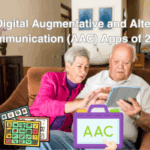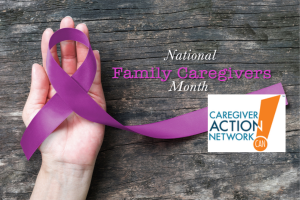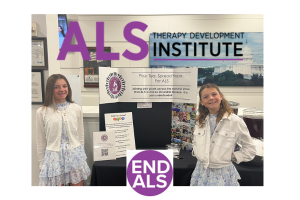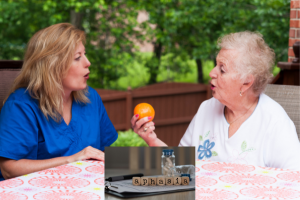Assistive Care Is Ever-Changing
At SimpliHere, we recognize and understand the central role professional caregivers play in the care of people living with ALS and their families. This month on the blog, we’re highlighting one such assistive care professional —Olivia Winkler, Director at BAYADA Home Health Care in Tucson, AZ. We connected with Olivia to hear about her job, what she loves about her work and the ALS community, and what keeps her inspired.
Can you tell us about your role?
I am the director of an assistive care office at BAYADA, a large home health care provider. We send caregivers into clients’ homes to help them with personal care, and to give respite when a family caregiver is in need of support or a break. Previously, I worked in assistive care with ALS and muscular dystrophy clients and then on the skilled nursing side. I loved my roles and felt like I had the job down. But the division director from assistive care called, and I stepped into the role here, back in assistive care.
What is your day like?
Every day is different in the world of assistive care, every day is a little chaotic, but that is something I like about my job! I oversee a team—a full-time clinical manager, registered nurse, clinical manager, client service manager, and two on-call managers. I’m responsible for oversight of all of them.
My day could include anything from helping with scheduling, to meeting with a prospective client who needs information about services, completing client intakes over the phone, and going to events in the community like health or job fairs, where I assist with recruiting. I also handle all our marketing, so I usually spend six to eight hours per week on marketing. I wear a lot of hats, and every day is a little different.
What do you love about your role as a professional caregiver?
I love so many things about my job. BAYADA is the best company I’ve ever worked for, and the people who work here are truly amazing. But my favorite thing is when I get to visit clients. Our field staff see clients every day, but I don’t—so it’s really a treat for me when I get to go out and talk with them or visit after they’ve started services. Seeing what a difference we’re making in people’s lives renews my spirit and helps me push forward to the next project or goal.
What are some of the challenges faced by professional caregivers and agencies like yours?
You hear a lot recently about staffing challenges in assistive care and health care, but we’ve been very blessed to have a very full pipeline to recruit staff. Retention in caregiving is a challenge, however. People move on from caregiver roles to school for nursing, or they move away, so retention can be challenging.
Another challenge is resources. While we live in a tight-knit community, local resources are limited—in this area, there are one rehab facility, one major assisted living facility, and only a few care homes. Finding the right care for clients when they have needs beyond what we can do for them at home is challenging.
What keeps you up at night? Is there a problem you wish you could solve for the ALS community?
Yes; if I had a magic wand, I’d solve the issue of resources. Most of our clients are paying for their own care; they only get as much as they can afford. For those who do have insurance coverage, they only get what is covered. It’s so limiting for those who need 12 or 24 hours of care. There are state programs out there that help provide clients with a caregiver, but there are not enough resources and funding in that area.
These programs and insurance companies also don’t pay for our services at rates that allow us to pay our caregivers well to do a great job. I wish I could fix this and give people all the hours of care they need, and we’d pay our great caregivers even more. Another issue in assistive care and health care general is disjointed communication between caregivers, clients, and families; the SimpliHere app is a great solution to help with communication in the ALS community, so I’m really looking forward to all that is happening with SimpliHere’s evolution.
Are there any opportunities for the professional caregiving field right now?
One thing is we are seeing is that as baby boomers are moving into older age, they want to stay at home versus entering assisted living. And there’s a lot of opportunity to help them stay there. I always thought I wanted to be working in an assistive living environment, instead of in in-home care, so this is exciting for me, figuring out new solutions for clients who wish to age in place or receive care at home.
We were just recently approved in my office to do live-in care, which is the option where clients have someone live in their home and take care of them around the clock. Other clients may opt for this if they don’t need overnight care but feel safer having someone stay overnight in their home, or so there is not as much turn-over of various caregivers in and out of the home.
Caregiving for people living with ALS can be all-encompassing. What keeps you inspired?
Truthfully, our clients keep me inspired. I worked with one client who has had ALS for 25 years, and he is truly the master of his care. He researches constantly, has all organic foods blended and put into his G-tube. He does everything to take care of himself—he’s inspiring, and the happiest person I’ve ever known with ALS. It is a challenging disease, but he has the opposite outlook of what you’d expect for someone facing an ALS diagnosis.
We also have one client who is what we call an “as-needed” client, and she has set up an arrangement so that if something happens to her, we can step in. She doesn’t want to leave it all to her husband. She hasn’t lost her abilities to speak or eat yet, and while she has them, she is taking control of her own life.
It’s super inspiring to me to see these clients say, “I’m bigger than this disease; I can take control over this disease instead letting ALS control me.”
About SimpliHere
The mission of SimpliHere is to ensure efficient care and peace of mind for caregivers and their patients with neurological conditions that impact communication and mobility. Joanna Rosenberg founded SimpliHere to address communication gaps between caregivers and patients. Her personal experience when her mother lived with ALS exposed the challenges of communicating and understanding basic needs, as well as managing daily tasks. Download SimpliHere today!








